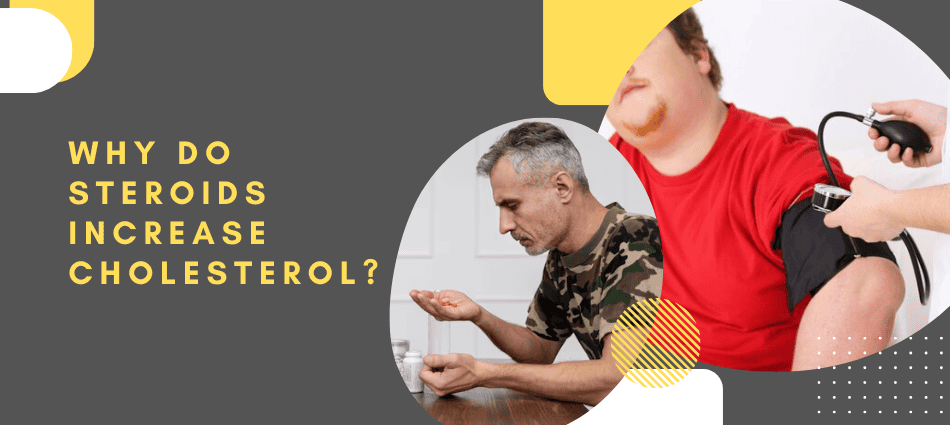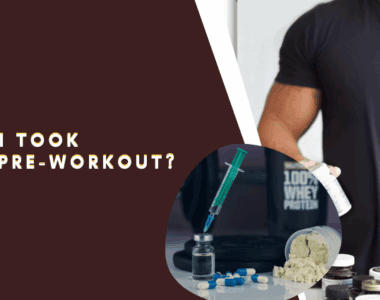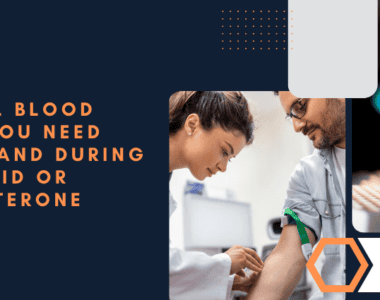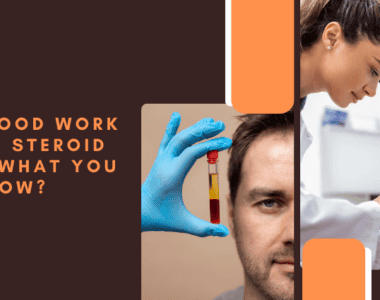Why Do Steroids Increase Cholesterol?
Steroids are often used by athletes, bodybuilders, and even patients recovering from certain medical conditions. They help build muscle, reduce inflammation, and improve performance. But there’s a hidden risk, steroids can increase cholesterol levels. This can lead to serious heart problems if not managed properly. But why does this happen? How do steroids affect cholesterol in the body? Let’s take a closer look.
What Is Cholesterol?
Cholesterol is a fatty substance found in your blood. It comes in two types:
- LDL (Low-Density Lipoprotein) – Often called “bad” cholesterol, high levels can cause plaque buildup in arteries. This increases the risk of heart disease and strokes.
- HDL (High-Density Lipoprotein) – Known as “good” cholesterol, it helps remove excess cholesterol from the blood and protects your heart.
For a healthy heart, you need low LDL and high HDL. But steroids can mess up this balance.
How Do Steroids Affect Cholesterol?
Steroids change how the body processes fats. Here’s how they affect cholesterol:
- Increase in LDL (Bad Cholesterol)
- Steroids increase the production of LDL cholesterol. More LDL means more fat deposits in the arteries. This leads to blockages and heart problems.
- Decrease in HDL (Good Cholesterol)
- Steroids reduce HDL levels. This is dangerous because HDL helps remove bad cholesterol. With lower HDL, the body struggles to clean out excess fats.
- Steroids reduce HDL levels. This is dangerous because HDL helps remove bad cholesterol. With lower HDL, the body struggles to clean out excess fats.
- Hardening of Arteries (Atherosclerosis)
- When LDL builds up, it forms plaques in the arteries. Over time, these plaques harden and narrow the arteries. This condition, called atherosclerosis, makes it harder for blood to flow properly.
- Increased Triglycerides
- Steroids can also raise triglyceride levels. High triglycerides, along with high LDL and low HDL, create a perfect storm for heart disease.
Why Do Steroids Cause These Changes?
Steroids affect cholesterol in multiple ways, including:
- Liver Function Disruption – The liver regulates cholesterol levels. Steroids interfere with this process, making the liver produce more LDL and less HDL.
- Hormonal Imbalance – Natural hormones keep cholesterol levels balanced. Steroids disrupt this balance, leading to unhealthy cholesterol levels.
- Increased Fat Distribution – Some steroids cause fat to accumulate in the blood, increasing cholesterol and triglycerides.
Types of Steroids That Increase Cholesterol
Not all steroids have the same effect on cholesterol. Some are worse than others:
Anabolic Steroids (Used for Muscle Growth) – These have the worst impact on cholesterol. They lower HDL and increase LDL.
Corticosteroids (Used for Inflammation) – These can raise LDL but have a milder effect compared to anabolic steroids.
What Are the Risks of High Cholesterol from Steroids?
If steroids increase your cholesterol, you may face serious health risks:
- Heart Disease – High LDL and low HDL increase the chance of heart attacks.
- Stroke – Blocked arteries reduce blood flow to the brain, leading to strokes.
- High Blood Pressure – Thickened arteries force the heart to work harder, raising blood pressure.
- Kidney Damage – Poor circulation from cholesterol buildup can harm kidney function.
How to Reduce Cholesterol While Using Steroids?
If you need to take steroids, there are ways to manage cholesterol levels:
1. Eat Heart-Healthy Foods
Choose healthy fats like olive oil, avocados, and nuts. Eat more fiber (fruits, vegetables, whole grains) to help remove bad cholesterol. Avoid saturated and trans fats (fried foods, fast food, processed snacks).
2. Exercise Regularly
Cardio exercises (running, cycling, swimming) help reduce LDL and increase HDL. Strength training can also help but should be balanced with cardio.
3. Take Supplements
Fish Oil – Omega-3 fatty acids help lower LDL and triglycerides. Niacin (Vitamin B3) – Boosts HDL levels naturally. Garlic Extract – May help lower cholesterol levels.
4. Monitor Your Cholesterol Levels
Get regular blood tests to track your cholesterol. Consult a doctor if levels are too high.
Conclusion
Steroids can increase cholesterol by raising LDL (bad cholesterol) and lowering HDL (good cholesterol). This raises the risk of heart disease, stroke, and high blood pressure. The main reasons are how steroids affect the liver, hormones, and fat distribution. If you use steroids, it’s important to eat healthy, exercise, and monitor cholesterol levels. Taking supplements and making lifestyle changes can help protect your heart. Always consult a doctor before using steroids, especially if you have cholesterol issues.




